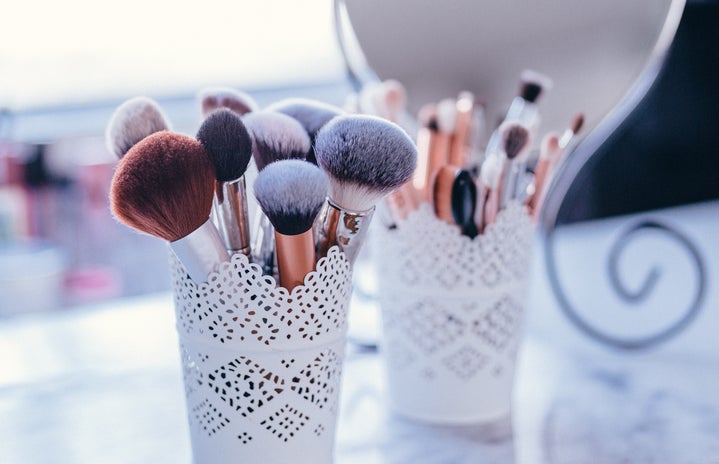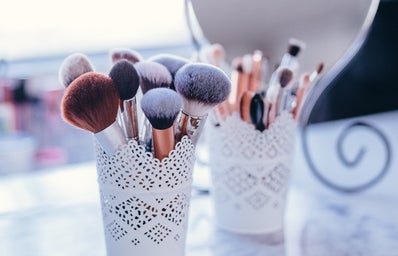Ah, foundation. Like the groundwork of an old building, it’s there to hold-up your make-up and smooth out your skin to make a nice even base. But recently I’ve grown sceptical – my foundation has cracked, if you will. This is perhaps just the outcome of my shift into my 20s and so a change in attitude towards how I view myself, but one which I think other people may benefit from hearing.
Painting faces to attain a certain level of perceived beauty has been around for centuries, from the white face paint of medieval East Asia to the French aristocracy accenting with black spots. It is of course not a singularly sought-after idea by certain people of races, cultures and identities – everyone wants to look beautiful.
Don’t get me wrong, when I say I’ve stopped wearing foundation that does not mean I have stopped wearing make-up. I love to experiment and try out new looks with lipsticks and eyeshadows, being hyped about new palettes with a slightly different shade of bright blues, hot pinks or warm reds that I can go crazy with. Make-up can be a great tool of creative expression, allowing you to project a version of yourself out into the world.
Then the danger lies in singularity, when the world sees only that projection. This does not mean that when we wear make-up we are somehow ‘lying’ about our real appearances to others – the sole purpose of make-up is to make up your face, to appear different to our ‘usual’ selves.
But foundation specifically does a fantastic job of making us feel that even before we start the make-up process the canvas must be completely clear, that is, our skin. And of course, if you are using products for more artistic purposes this reasoning seems to make sense, a painter would not usually start painting on a blotchy, uneven canvas to achieve the best image and colour harmonies.
But if like me you use make-up on a more every-day basis, this search for that ‘flawless’ skin can become mentally and physically destructive, since most always the answers are in found in that ‘perfect’ foundation. I wore make-up almost every-day in my first year of university because I wanted to seem ‘flawless’ and ‘polished’ to my peers, as if having the appearance of perfect skin equated to having everything else together. I wasn’t lying about the appearance of my face to everyone around me, I was lying to myself, about myself. A small part of me was hoping that being perceived as having beautiful skin would give me the confidence I needed to carry me through a completely new lifestyle as a university student. Of course, it did not. The more I focused on my skin and how it looked, the more consumed I became with this projection of myself, one time going as far as to skip a seminar because I had acquired a large spot that morning.
Reggie Rivers once said that ‘if you want to achieve your goals, don’t focus on them’. And so, I stopped. I gradually stopped fearing my own skin, and instead accepted it.
My skin is a part of my body, it serves a function to help me.
I told myself this over and over again. A spot was telling me I probably shouldn’t have ordered that pizza at 1am yesterday – but really, it was worth it so I’ll deal with it – or that my period was about to arrive – I know, I’ll pack pads in my bag today – or that I need to go to the doctors to discuss my acne – I don’t think this medication is working for me, time to switch – or that I’m stressed out – let’s take a bubble bath and get an early night.
My goal is not necessarily to achieve perfect skin, or grow into my skin, but grow out of it. My skin is not the only part of me that people see, and equally, should not be the only part of me I focus on changing.
What truly flipped my perspective in this journey of self-acceptance was when my partner told me one time I was putting on foundation to go to a seminar – ‘You know, no one has perfect skin, right?’. And they were right! That day, I instead focused on the imperfections of those around me and found that those who I thought had perfect skin did not, they too wore foundation, they too were worried about their skin, I was simply seeing their projections.
That night, I threw away my foundation and haven’t worn any since.
So, next time you pick up those brushes, try painting on that ‘blotchy’ ‘uneven’ canvas.
And who knows? You may be the next make-up Monet.



